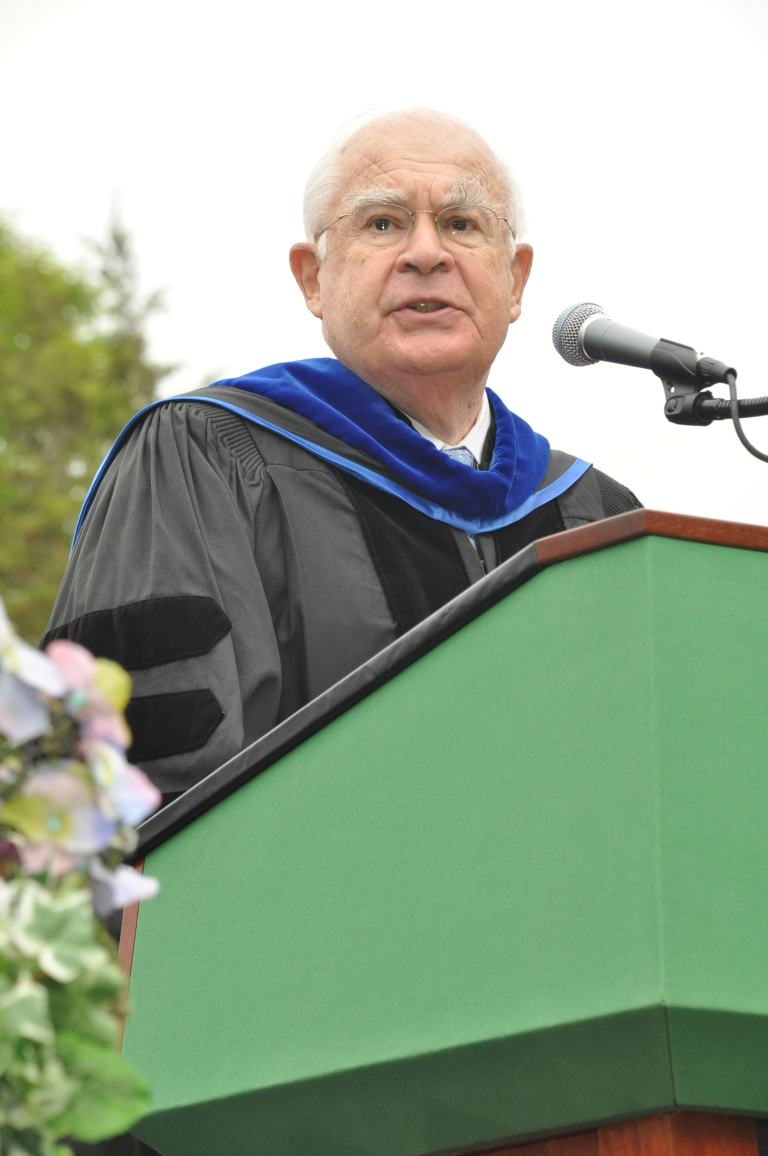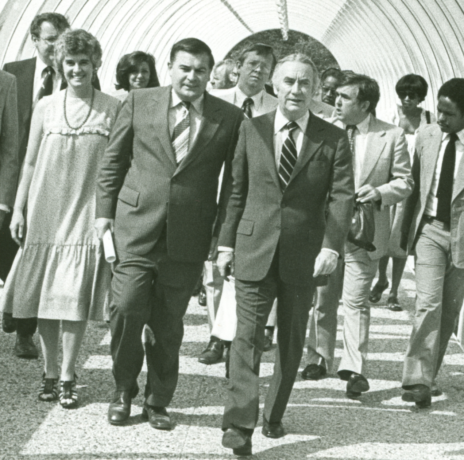
John D. Maguire, a civil rights activist and the second president of SUNY Old Westbury, who led the university during its period of rebirth, died at age 86 on Oct. 26.
Maguire was the university’s president from 1970 to 1981 and was influential in its transformation into an institution that catered to students underrepresented in higher education, said Robert Hoyte, a SUNY Old Westbury distinguished teaching professor of chemistry.
Maguire died after suffering a stroke, according to Newsday.
After student protests in the late 1960s that urged the university to increase accessibility for minority populations, SUNY Old Westbury closed for a year of planning to pivot toward that goal, Hoyte said.
Maguire joined the university at that time, which he described as an “exhilarating” experience planning “an institution that would be radically mixed [and] trans-disciplinary in its mode of study,” in a 2011 interview for SUNY Old Westbury’s oral history project.
His presidency throughout the 1970s was during a “rebirth” of the university, as the social justice-minded faculty considered how to best implement a curriculum for a more diverse student body, Hoyte said.

“He provided vision and leadership that has served as a bedrock for our college’s mission for most of its more than 50-year history,” SUNY Old Westbury President Calvin O. Butts III wrote in a letter to the campus after Maguire’s death.
During Maguire’s presidency, the campus community knew him on a first-name basis, and Maguire would open his home to host students and faculty, Hoyte said.
“He was a scholar in the humanities, religion and ethics and philosophy, and so he himself engaged in a lot of in-depth conversations with faculty and students about ideas, about social issues and how to solve this ‘riddle of human justice,’” Hoyte said.
Maguire grew up in Raleigh, North Carolina, and Montgomery and Birmingham, Alabama, and said he began getting inklings of a sense of racial injustice during his early teens through discussions with his YMCA director.
He met Martin Luther King Jr. during college at a seminary weekend retreat, and they developed a long friendship, Maguire said in his 2011 interview.
“He, like I, had come young, 16 years old, to college,” Maguire said. “He was three years older than I was. So when I was 19 and Dr. King was 21, we met and then began a series of things that got tight and tighter.”
Maguire participated in the Freedom Rides, a civil disobedience movement to protest segregated bus terminals, in the summer of 1961, a period in which he was teaching at Wesleyan University.
He was arrested with his fellow riders, some of whom were black Wesleyan students, in a Montgomery, Alabama, segregated restaurant, according to the NAACP Legal Defense and Educational Fund.
President John F. Kennedy appointed him to the civil rights commission of Connecticut, Maguire said in his 2011 SUNY Old Westbury interview.
Maguire’s college career took him from Virginia to Scotland and then up the East Coast.
He attended Washington and Lee University as an undergraduate. He was then a Fulbright fellow in Scotland before attending Yale Divinity School and earning a doctorate in theology and psychiatry.
He was again involved with Fulbright in 1965 when he researched in Germany as a Fulbright scholar.
In 2009, he earned a Fulbright Lifetime Achievement Medal.
Following his 11-year presidency at SUNY Old Westbury, Maguire was chancellor of Claremont Graduate University until 1998.
He remained involved with the university as a senior fellow in its Division of Politics & Economics and director of the Institute for Democratic Renewal.
“He organized and led ground-breaking initiatives on race and democracy,” Claremont Graduate University President Len Jessup wrote. “He sought to combat institutionalized racism and remedy race-based disparities in areas such as education, health care delivery, economic development, and criminal justice. He believed that our promise as a nation would only be realized by breaking down these barriers and focusing on social justice for all.”
Maguire was on the board of directors for the NAACP Legal Defense and Educational Fund beginning in 1991.
He became a visiting fellow with the Woodrow Wilson Foundation in 2004, according to SUNY Old Westbury.
Maguire is survived by his wife Lillian (Billie) Maguire, his daughters Anne Turner of Claremont, California, Catherine Maguire of Palmyra, Virginia, and Mary Maguire, of Montpelier, Virginia, and his sister, Martha Worsley of Jacksonville, according to Newsday.






